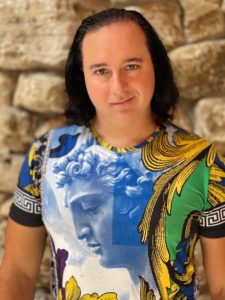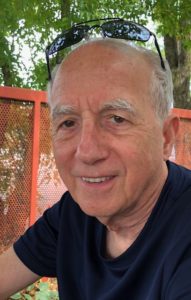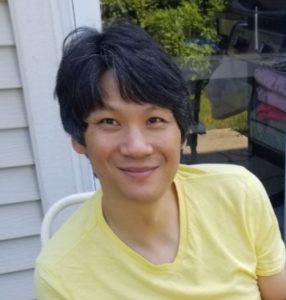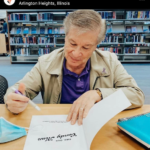
Author Harry Trumfio
Harry Trumfio is a former public school superintendent, a private school headmaster, and served as Chairman of the Department of Education at Benedictine University. He is also the father of four children and grandfather to six. In two recently published books he explores and honors the role of fathers.
When you began the story about your father what did you want to prioritize?
Of Saints and Wooden Nickels was the result of many breakfast meetings with my dad as I endeavored to learn more about his early life. I actually incorporated some of what I learned at the eulogy I gave at his funeral. After his death I t reflected up what I had learned and thought his story would make a good book. I wanted to develop his character and the mystery surrounding his family in Italy. I needed to begin with his early life in Chicago and his place in his close-nit family.
How did you get the reader engaged in what your father experienced?
I tried to provide descriptions of characters, places and events and then describe my dad’s reactions and those of the characters involved in the situations. His drive to discover a closely guarded family secret is the moving force behind the story.
Point of view is a primary tool in writing. How did you tackle it in the story?
The story is written in the third person. If I were to do it again, I think I would choose first person. I believe it would provide a greater exploration of his reactions and feelings at the time of each of the incidents described in the story.
Was it hard to portray struggles when the main character is your father?
Since I had spoken with my dad about the various situations described in the book, I had an idea of their content. Writing dialog to go along with the scenes was a bit of a challenge but since I had a pretty good grasp of my dad’s personality, I think I was able to write a realistic portrayal of the circumstances and encounters throughout his quest.
What resources did you rely on when writing the story?
Of course, my major resource was my remembrances of our breakfast conversations about his early life in Chicago, and his quest to discover the family secret. I also relied on the Internet for descriptions of the ships, locations and conditions in Italy during the time of the story.
What did you find was the best way to keep driving the story forward?
I used the chronology of his venture and the incidents he told me about along the way to keep the story moving forward.
What makes your book “An American Story”?
My dad was a self-made man. The book is a coming-of-age story. I believe his story illustrates that dogged determination growing up, if continued, will lead one to success in later life.
Soon after finishing the story of your father, you published an illustrated children’s book about a father and his two sons. Where did you get the idea for this book?
The happening described in the book is based upon the actual experiences my brother, Dominic and I enjoyed working with my dad making candy and especially his signature frozen confection treats.
What do you hope readers will take away from this book?
The close and loving relationship fathers and sons can engender when they work on activities together.
Did you have children read it before publishing? What was their response?
Response from the illustrator’s child was very positive. Adults that read it, loved it.
How has the community of writers at BWW helped you as an author?
BWW members have been a great help by sharing thoughts and ideas that are useful in improving any work I put forth.
How did you publish the books? Are you happy with the results?
Of Saints and Wooden Nickels was self-published through Book Baby, who also provided editing suggestions. Dad, Our Candy Man was managed by Chris O’Brien at Long Overdue Books. He and his staff were a tremendous aid in moving the story idea to finished illustrated book. I owe a special thanks to Dena Ackerman who provided the wonderful illustrations.
Happy Father’s Day to all dads!
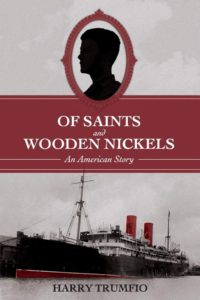
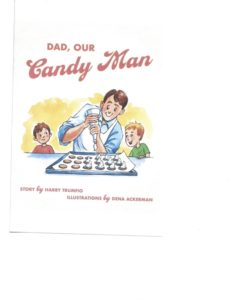

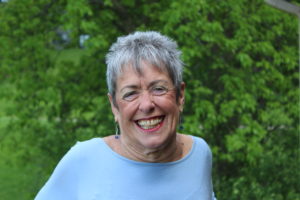
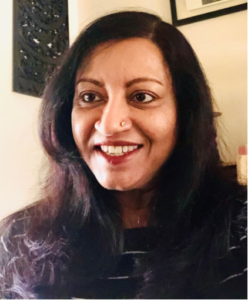
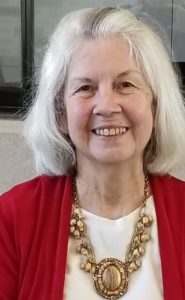 With a new year come lots of new beginnings. Author Georgann Prochaska talks about how she begins a story and how important good beginnings are. Georgann holds a degree in literature, taught high school English classes for 34 years, and has published seven books since 2014.
With a new year come lots of new beginnings. Author Georgann Prochaska talks about how she begins a story and how important good beginnings are. Georgann holds a degree in literature, taught high school English classes for 34 years, and has published seven books since 2014. Thanksgiving is a time for reflecting on feelings of gratitude. We asked Barrington Writer Workshop members to share their thoughts on what they are grateful for about the group.
Thanksgiving is a time for reflecting on feelings of gratitude. We asked Barrington Writer Workshop members to share their thoughts on what they are grateful for about the group.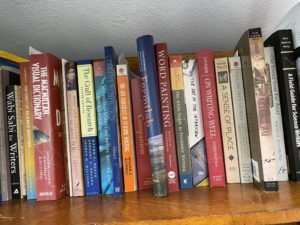 Curious about what goes on at local author fairs and how you might participate in one? BWW published authors
Curious about what goes on at local author fairs and how you might participate in one? BWW published authors 